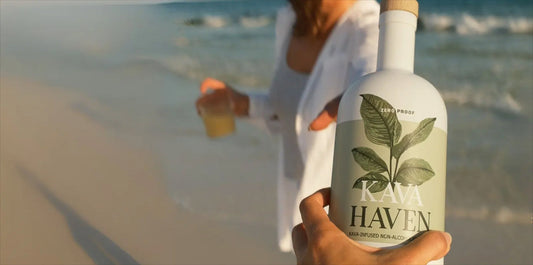If you’ve been exploring natural ways to relax, or natural alternatives to alcohol, you might have encountered kava and wondered how it fits into the broader landscape of substances.
Kava, derived from the root of the Piper methysticum plant, is known for its relaxing and socially uplifting effects. But does this mean it’s considered a drug? Let’s dive into the details and understand where kava stands.
Understanding Kava
Kava, scientifically known as Piper methysticum, has a rich history deeply rooted in the traditions of the South Pacific islands. For centuries, kava has been used in social and ceremonial contexts to foster relaxation and enhance social interactions. Made from the root of the kava plant, it’s typically prepared by grinding or pounding the roots and mixing them with water to create a soothing beverage.
Regulatory Classification
In many countries, kava is classified as a dietary supplement or herbal remedy rather than a controlled substance or pharmaceutical drug. For example, in the United States, kava is regulated by the Food and Drug Administration (FDA) as a dietary supplement. This classification reflects kava’s role as a natural, plant-based product rather than a drug used for specific medical conditions.
Addressing Concerns: Kava and Liver Health
One of the primary concerns surrounding kava relates to its potential impact on liver health. In the early 2000s, there were reports of liver toxicity linked to kava, leading to temporary bans and heightened scrutiny. However, it’s crucial to understand that these issues were predominantly associated with poor-quality kava products, such as non-noble varieties and those processed with harsh solvents like ethanol and butane.
Subsequent research and scientific studies have largely debunked the myth that kava, particularly noble kava, poses significant risks to liver health. The World Health Organization (WHO) has conducted extensive research and concluded that traditional consumption of noble kava is unlikely to cause liver toxicity or adverse health effects when used responsibly. The WHO's assessment highlights that kava has a long history of safe use, with no significant liver side effects reported in traditional contexts.
Kava vs. Conventional Drugs
Unlike pharmaceutical drugs, which are often synthesized and used for specific medical purposes, kava is a natural herbal supplement used for its relaxing and socially uplifting effects. Conventional drugs undergo rigorous testing and approval processes to ensure their safety and efficacy for treating medical conditions. In contrast, kava is used more broadly for its calming and social benefits.
Conclusion
So, is kava considered a drug? Technically, no. Kava is classified as a herbal supplement rather than a controlled substance or pharmaceutical drug. It offers relaxing and socially uplifting effects rather than being used for medical treatments. When sourced from reputable suppliers and used responsibly, kava provides a safe and enjoyable alternative to alcohol.
Introducing Kava Haven: A Kava-Infused Non-Alcoholic Spirit
Kava Haven is a pioneering kava-based non-alcoholic spirit, meticulously formulated to deliver the relaxing and socially stimulating effects you might miss from alcohol, but without any of the downsides. Each serving contains 150mg of kavalactones, the active ingredients in kava, known for their ability to promote relaxation and enhance social experiences.
Crafted with all-natural ingredients, Kava Haven features a delightful blend of lemon juice, white grape juice, ginger extract, vanilla, cardamom, and orange blossom. The result is a refreshing flavor profile that tastes like a lemon drop shot with a ginger kick, providing a unique and enjoyable drinking experience.
Whether you're looking to unwind after a long day or socialize with friends without the effects of alcohol, Kava Haven offers a delicious and effective alternative. Embrace the benefits of kava and discover a new way to relax and connect with Kava Haven.





1 comment
So if an employer asked for a drug test, Kava would not trigger a positive result?